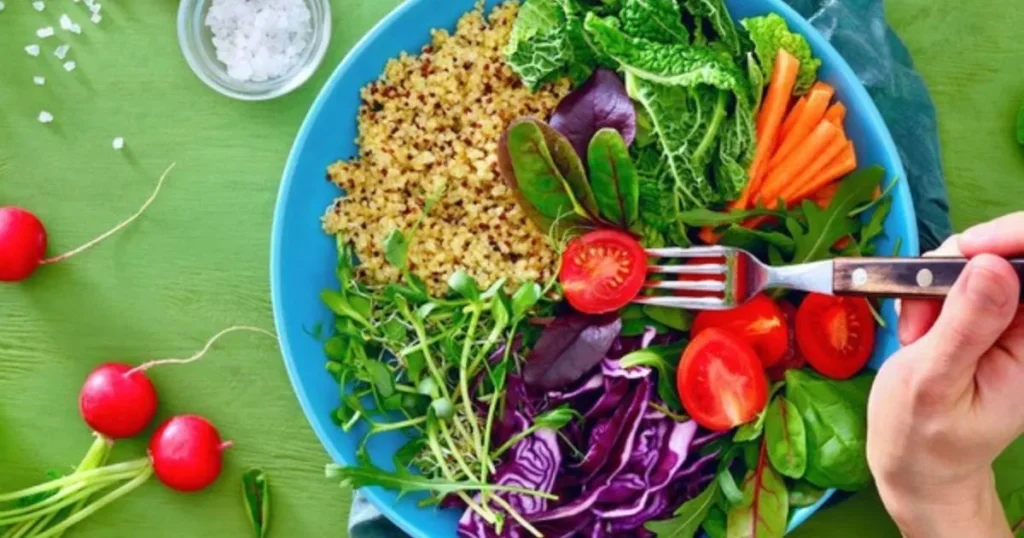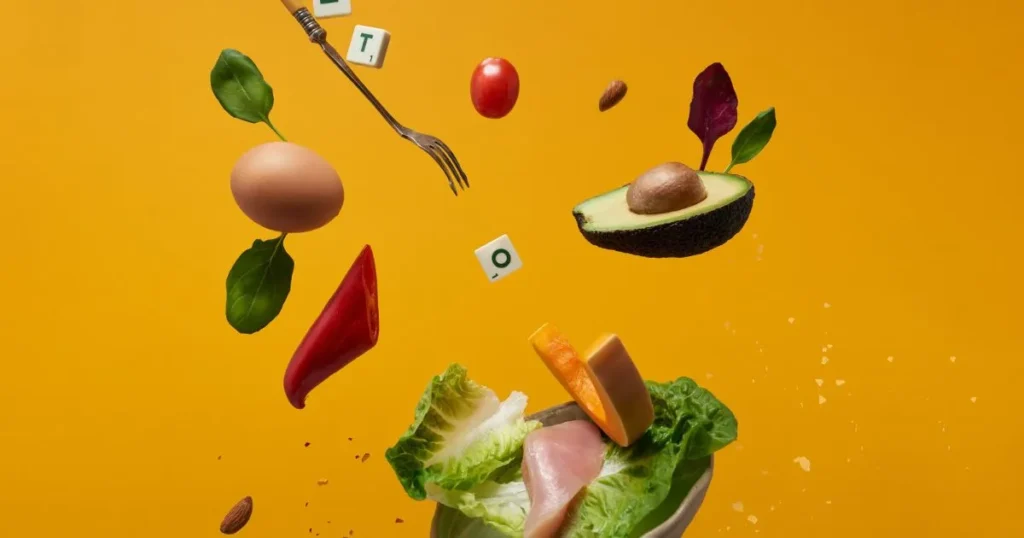Vitamin D is a crucial nutrient for maintaining overall health. Sunlight is the primary source of this essential nutrient, so maintaining optimal levels of it is crucial. However, our lifestyles can limit our sun exposure, making it challenging to maintain these levels. In this comprehensive guide, we explore not only why Vitamin D is vital but also introduce you to a variety of foods that are good sources of Vitamin D.
Understanding Vitamin D
Vitamin D is a vitamin that dissolves in fat and helps regulate levels of calcium and phosphate in our body. It performs a vital role in promoting healthy bones, supporting our immune system, and aiding cell growth. Unlike other vitamins, the body can synthesize vitamin D when exposed to sunlight.
Vitamin D plays several critical roles in maintaining health. It is essential for keeping bones healthy and helping the body absorb calcium, but it also affects many other bodily functions.
- Bone Health: Strong and healthy bones require the absorption of calcium. Adequate levels of vitamin D help your body do this.
- Immune System Support: Vitamin D helps regulate and enhance the immune system’s response to pathogens, potentially reducing the risk of autoimmune diseases and infections.
- Neuromuscular Function: It is also vital for maintaining proper neuromuscular function and reducing inflammation.
- Mood Regulation: Studies have shown that vitamin D might help to regulate mood and prevent depression.
Many people around the world don’t get enough vitamin D, which can cause a number of health problems, including weakened bones, muscle weakness, and a higher chance of certain diseases.
How much vitamin D should you have?
The amount of vitamin D someone should aim for daily depends on age and health. However, most people should aim for around 800 international units (IU) daily. However, those with known deficiencies may be recommended higher doses or prescribed supplements.
- Infants up to 12 months need 400 IU
- Children ages 1-18 require 600 IU
- Adults up to age 70 should aim for 800 IU
- Adults over 70 should increase to 800 IU
- Pregnant and breastfeeding women may need more, around 600-800 IU
Health Conditions that Impact Need
People with specific health concerns may require more D:
- For those with osteoporosis or those at high risk, higher doses can be helpful
- Conditions affecting fat absorption, such as Crohn’s or celiac disease, could lead to lower vitamin D levels
Good Sources of Vitamin D
Vitamin D is an essential nutrient that is vital in various bodily functions. It helps maintain bone health, supports the immune system, and improves overall well-being. Although sunlight is the primary source of vitamin D, some foods also contain this essential nutrient. Let’s delve deeper into the good sources of vitamin D and how they contribute to a healthy diet.
Fish
Fatty fish are renowned for their high vitamin D content, making them excellent natural sources of this nutrient. Here are some examples of fatty fish rich in vitamin D:
Salmon
Salmon is a delicious and versatile fish and a powerhouse of nutrients. It is vibrant in omega-3 fatty acids and vitamin D.
Based on data from the United States Department of Agriculture (USDA) Food Composition Database, a single serving of farmed Atlantic salmon weighing 3.5 ounces (100 grams) contains approximately 526 IU of vitamin D. This amount represents 66% of the Daily Value (DV) recommended for daily vitamin D intake[1].
Consuming salmon regularly can significantly boost vitamin D intake and promote heart health.
Trout
Trout is another type of fish that offers a substantial amount of vitamin D. It is a lean protein source. It provides essential nutrients and vitamin D, making it a nutritious choice for overall health.
According to the United States Department of Agriculture (USDA) Food Composition Database, a 3.5-ounce (100-gram) serving of farmed Atlantic salmon contains 635 IU of vitamin D. This amount corresponds to 79% of the Daily Value (DV) recommended for vitamin D intake [2].
Tuna
Whether canned or fresh, tuna is a popular seafood choice known for its protein content and omega-3 fatty acids. It also contains vitamin D, contributing to its nutritional value and health benefits.
According to nutritional data, a 3.5-ounce (100-gram) serving of canned light tuna contains approximately 269 IU of vitamin D. This quantity represents 34% of the Daily Value (DV) recommended for vitamin D intake [3].
Including canned light tuna in your diet can contribute significantly to meeting your vitamin D requirements.
Sardines
Despite their small size, sardines pack a nutritional punch. They are rich in omega-3s, protein, and vitamin D. Fresh Atlantic herring offers approximately 214 IU of vitamin D per 3.5-ounce (100-gram) serving, representing 27% of the Daily Value (DV) recommended for vitamin D intake [4].
Adding sardines to your diet can help meet your vitamin D requirements while providing other essential nutrients.
Mushrooms
Certain mushrooms, such as morels, can produce vitamin D when exposed to sunlight or ultraviolet (UV) light. A single cup of these mushrooms provides approximately 136 IU of vitamin D, equating to 17% of the Daily Value (DV) recommended for vitamin D intake [5].
These sun-exposed mushrooms become a natural source of vitamin D, making them valuable for individuals following vegetarian or vegan diets.
Cod Liver Oil
Cod liver oil is a rich source of vitamin D, omega-3 fatty acids, and vitamin A. It is extracted from the livers of cod fish and is available as a supplement.
With approximately 450 IU per teaspoon (4.5 mL), this source of vitamin D contributes significantly, representing 56% of the Daily Value (DV) recommended for vitamin D intake [6].
Consuming cod liver oil can effectively boost your vitamin D levels, especially during limited sun exposure.
Eggs
Eggs are nutrient-dense foods that contain various vitamins and minerals, including vitamin D.
A large egg yolk contains approximately 37 IU of vitamin D, accounting for 5% of the Daily Value (DV) recommended for vitamin D intake [7].
Choose eggs from free-range or pasture-raised chickens. These eggs usually contain higher vitamin D levels than eggs from conventionally raised chickens, helping you get more vitamin D in your daily diet.
Fortified Milk
Many dairy and plant-based milk alternatives are fortified with vitamin D to enhance their nutritional profile. These include:
Dairy Milk
Cow’s milk is naturally rich in various nutrients such as calcium, phosphorus, and riboflavin, making it a valuable dietary source for overall health and nutritional needs [8]. Drinking fortified dairy milk can improve vitamin D intake and support bone health.
Soy Milk
Fortified soy milk suits individuals who prefer plant-based alternatives to dairy milk. It provides similar nutritional benefits, including vitamin D, making it a valuable addition to vegan or lactose-intolerant diets.
On average, one cup (237 mL) typically contains approximately 100–119 IU of vitamin D, representing about 13–15% of the Daily Value (DV) recommended for vitamin D intake [9].
Oat Milk
Oat milk fortified with vitamin D offers a creamy texture and added nutritional value. It is a popular dairy-free option used in various beverages and recipes, and it provides essential nutrients, including vitamin D.
Almond Milk
Fortified almond milk is a favorite dairy alternative known for its nutty flavor and versatility. It is enriched with vitamin D, making it a nutritious choice for individuals seeking plant-based milk options.
Orange Juice
Some brands of orange juice have added vitamin D to make it a refreshing and healthy beverage option. Check the label to ensure your orange juice is fortified with vitamin D to maximize its health benefits.
A standard serving of fortified orange juice, typically one cup (237 mL), can provide up to 100 IU of vitamin D, equivalent to 12% of the Daily Value (DV) recommended for vitamin D intake [10].
While orange juice is a common source of vitamin D, it may not be suitable for everyone due to specific health considerations, for individuals prone to acid reflux, consuming orange juice can exacerbate symptoms, making it advisable to seek alternative sources of vitamin D.
Similarly, for individuals managing diabetes, it’s essential to monitor the impact of juice consumption on blood sugar levels. Orange juice can lead to spikes in blood sugar, which may not be ideal for individuals with diabetes. However, orange juice can be a beneficial option when there is a need to raise low blood sugar levels, such as during hypoglycemia.
Cereal and Oatmeal
Certain breakfast cereals and oatmeal varieties are fortified with essential vitamins and minerals, including vitamin D.
A cup of fortified wheat bran flakes provides 145 IU of vitamin D, contributing 18% of the Daily Value (DV) recommended for vitamin D intake [11]. Conversely, one cup of fortified crisp rice cereal contains 85 IU of vitamin D, representing 11% of the DV [12].
Starting your day with a bowl of fortified cereal or oatmeal can contribute to your daily vitamin D intake while providing a wholesome breakfast.
Maintaining sufficient levels of vitamin D is essential for overall health. You can do this by choosing foods high in this crucial nutrient. Being mindful of what you eat can positively impact your well-being.
Commit to assessing your current vitamin D intake and consider making changes to support your health. Whether you enjoy a delicious piece of salmon, sip on a glass of fortified OJ, or spend a few more minutes in the sun, your body will thank you for the boost of this vital nutrient.
Frequently Asked Questions
Why is vitamin D essential for overall health?
Vitamin D is crucial for strong bones, immune function, mood regulation and calcium absorption.
What are the daily recommended doses of vitamin D?
The recommended daily vitamin D intake varies based on age, gender, and health status. Generally, adults need around 800 international units (IU) of vitamin D per day.
Can I get enough vitamin D from sunlight alone?
If you live in a place with little sunlight, have a certain skin tone, or use sunscreen often, your body may not produce enough vitamin D. You can still get the daily amount of vitamin D you need by eating the right foods.
What are some natural sources of vitamin D besides sunlight?
Vitamin D can be found in natural sources such as fatty fish like salmon, trout, tuna, and sardines, mushrooms, cod liver oil, eggs, and milk. Cereals that are fortified with vitamin D are also a good source of this nutrient. This vitamin can be found in milk that is fortified with vitamin D, including soy, oat, and almond milk.
Are there any risks associated with vitamin D deficiency?
Vitamin D deficiency can lead to weakened bones (osteoporosis), increased risk of fractures, compromised immune function, mood disorders, and other health issues. Maintaining adequate vitamin D levels through a balanced diet and, if necessary, supplementation is essential.
How can I ensure I’m getting enough vitamin D in my diet?
Getting enough vitamin D is important for your health. You can increase your vitamin D intake by eating foods that are rich in this nutrient, like fatty fish, fortified milk, eggs, and mushrooms. It’s also a good idea to talk to a healthcare professional for personalized advice and to consider taking vitamin D supplements if you need them.
Are there any dietary restrictions for consuming vitamin D-rich foods?
Vitamin D-rich foods are generally safe for consumption within a balanced diet. If you have specific dietary restrictions or allergies, it’s important to consult a healthcare provider or nutritionist for personalized guidance on safely incorporating these foods into your diet.
Can I overdose on vitamin D from food sources?
It’s unlikely to overdose on vitamin D from dietary sources alone, as excessive vitamin D intake usually results from supplementation. However, to prevent potential adverse effects, it’s essential to follow recommended daily intake guidelines and avoid excessive supplementation without medical guidance.
- The Ultimate Keto Meal Plan: Benefits and Recommendations - June 28, 2024
- Keto Gummies: Are They Safe for Weight Loss? - May 23, 2024
- Shiitake Mushrooms: 9 Health Benefits And Uses - April 19, 2024


